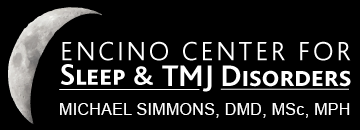Exercise & Sleep Apnea
November 20, 2018
Sleep apnea is a serious medical condition that affects the heart and how a person breaths during sleep. Symptoms of sleep apnea can range from loud snoring to excessive daytime sleepiness. There are a couple of types of treatment available to our patients, but recent studies have found that daily exercise can lower the severity of sleep apnea symptoms by about 25%.
Reducing the Danger with Exercise
Sleep apnea has been associated with various medical conditions, including high blood pressure and diabetes. It’s also linked to some cardiovascular problems, including:
- Arrhythmias (fluttering heartbeat)
- Heart attack
- Stroke
- Heart failure
Selecting a Treatment
The standard treatment for sleep apnea involves a bulky, invasive breathing device called a continuous positive airway pressure (CPAP) machine. CPAP machines and other sleep apnea treatment alternatives can be intolerable for some patients. Because of this, exercise can be a therapeutic alternative that is easy and inexpensive compared to the other options.
Dr. Simmons recommends a combination of a standard treatment option (e.g., CPAP, oral appliances, or upper airway surgery) and exercises even though it has been proven to decrease the severity of sleep apnea symptoms by 25%. Sleep apnea can, in the worst cases, cause death, so a mixture can significantly reduce the number of sleep apnea episodes a person has each night.
Also, it should be said that exercise refers to a workout program of brisk walking, jogging, running, and weight training, or a combination of one or more of these options. Christopher Kline, a postdoctoral scholar in the Department of Psychiatry at the University of Pittsburgh School of Sleep Medicine, noted that patients who were only introduced to daily stretching saw their breathing problems worsen.
Sleep Apnea: Advantages of Exercise
It’s well-known that being overweight is a risk factor for sleep apnea. Regular exercise will help you lose weight, but the advantages don’t end there. Other benefits of exercise include:
- Increased sleep efficiency
- Decreased symptom severity
- Increased maximum oxygen consumption
- Decreased daytime sleepiness
Dr. Simmons is Qualified
If you’re curious about sleep apnea, treatment options, or exercise, then we can help. Dr. Simmons is a qualified sleep dentist and will ensure you get the right diagnosis and treatment for your unique needs. Call our office at 818-300-0070 to schedule a consultation today. Additionally, you can fill out the submission form, and we’ll get back to you promptly.
